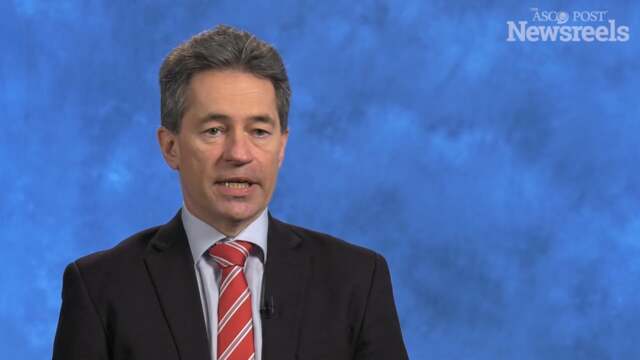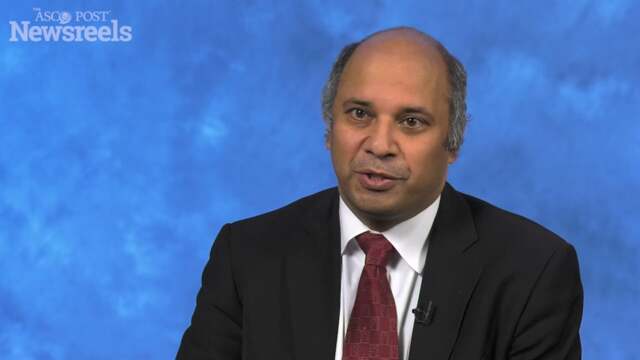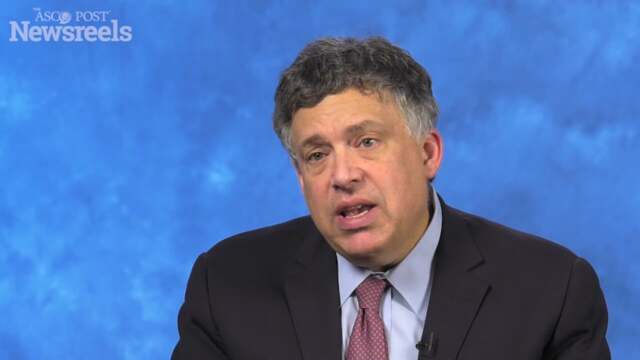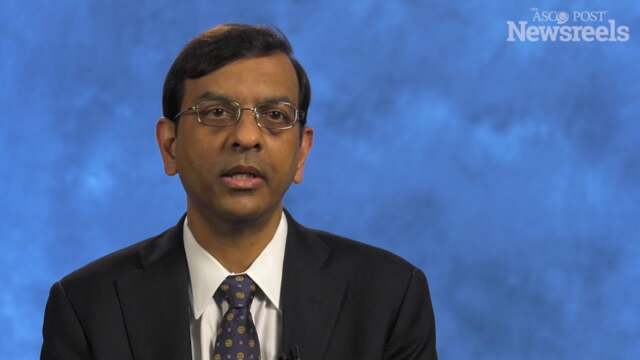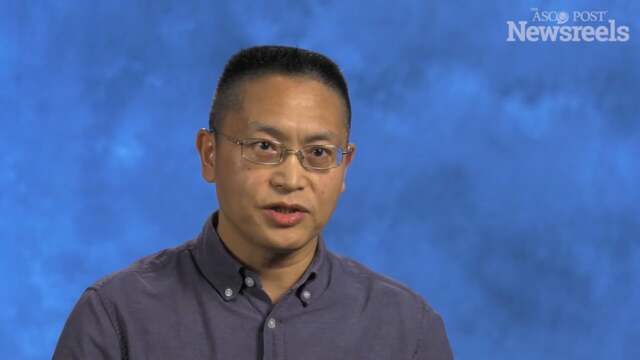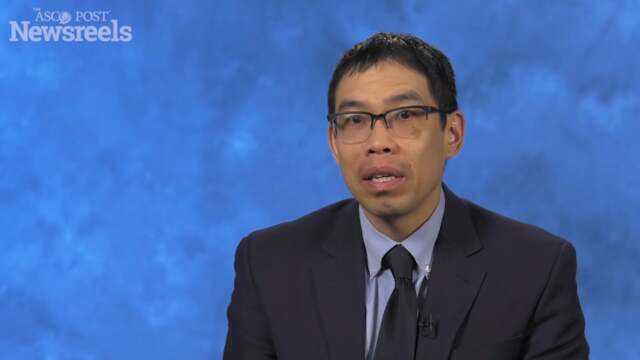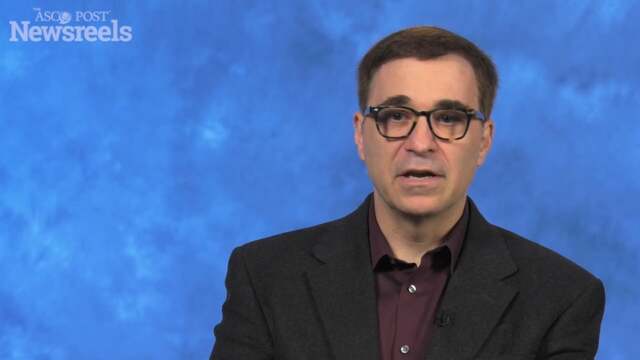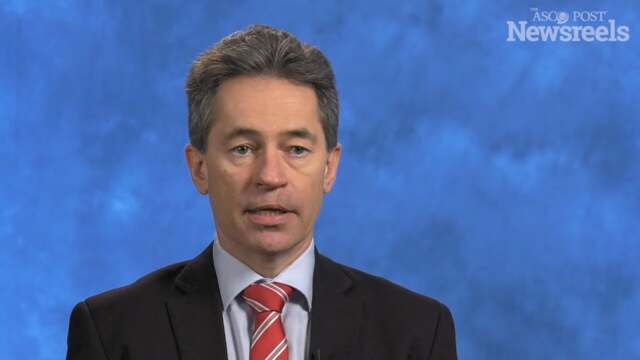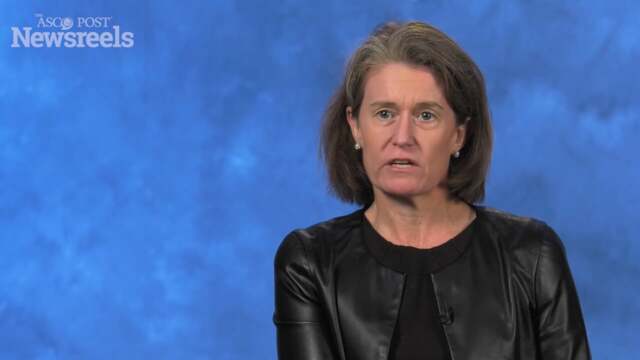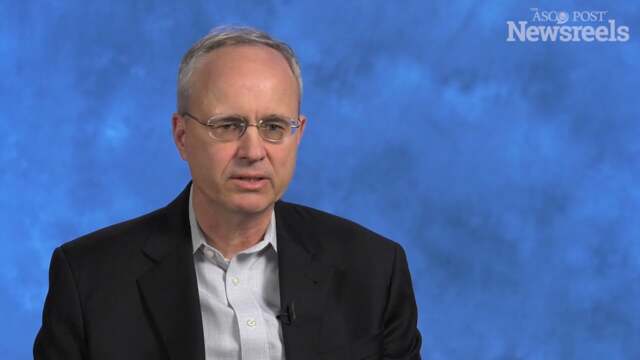2017 ASCO-SITC Clinical Immuno-Oncology Symposium
Intratumoral Plasmid Interleukin-12 Boosts Response to Pembrolizumab
In patients with stage III/IV melanoma, immunologically “cold” tumors were rendered immunologically active through intratumoral injections of plasmid interleukin-12 (IL-12) combined with pembrolizuma...
Expert Point of View: Shridar Ganesan, MD, PhD
Shridar Ganesan, MD, PhD, of the Rutgers Cancer Institute of New Jersey, discussed the study on the gut microbiome. Dr. Ganesan noted that response to immunotherapy depends not only on tumor characte...
Gut Bacteria May Enhance, or Hamper, Response to Anti–PD-1 Agents
The microbiome has become an area of intense interest for many health-related reasons. Add to this list the potential for a positive or a negative effect on responsiveness to immunotherapy. Gut microb...
‘Non-Engineered’ T-Cell Therapy Produces Durable Responses in Hematologic Malignancies
Adoptive T-cell therapy using “non-engineered” T cells has been showing activity in hematologic malignancies, according to a presentation by Ann M. Leen, PhD, at the 2017 ASCO-SITC Clinical Immuno-On...
Expert Point of View: Heather L. McArthur, MD, MPH
Discussant Heather L. McArthur, MD, MPH, Medical Director of Breast Oncology at Cedars-Sinai Medical Center, Los Angeles, called the plinabulin findings “provocative,” especially considering the subst...
Plinabulin Improves Survival in Subset of Patients With Non–Small Cell Lung Cancer
The investigational small-molecule plinabulin yielded some interesting benefits when added to docetaxel in previously treated patients with stage III/IV non–small cell lung cancer (NSCLC), in a phase...
Expert Point of View: Heather L. McArthur, MD, MPH
Study discussant Heather L. McArthur, MD, MPH, Medical Director of Breast Oncology at Cedars-Sinai Medical Center, Los Angeles, noted that human papillomavirus (HPV) vaccination has been shown to pre...
Early-Phase Study of HPV Type 16–Directed Vaccine Combined With Chemotherapy in Advanced Cervical Cancer
When combined with chemotherapy, a vaccine against the human papillomavirus (HPV) type 16 potentiated T-cell responsiveness and improved clinical outcomes in patients with advanced cervical cancer en...
Expert Point of View: Shridar Ganesan, MD, PhD
Shridar Ganesan, MD, PhD, of Rutgers Cancer Institute of New Jersey, discussed the study by Cristescu et al at the 2017 ASCO-SITC Clinical Immuno-Oncology Symposium. He noted that data from many sour...
KEYNOTE Trial Data Suggest Features Predicting Response to Pembrolizumab
A high mutational load and the presence of a T-cell–“inflamed” environment may independently predict for treatment response to pembrolizumab (Keytruda) and progression-free survival, according to a s...
Progress Being Made in Understanding Immunotherapy Resistance
A key challenge in advancing immunotherapies is to understand mechanisms of response and resistance. Emerging research in this area—including evidence that early on-treatment biopsies can predict res...
Novel Immunotherapeutic Vaccine Studied in Colorectal Cancer
Patients with advanced colorectal cancer mounted a robust response to an experimental vaccine and low-dose cyclophosphamide, and strong responses were associated with improvements in survival in a pha...
Expert Point of View: Ann W. Silk, MD
Ann W. Silk, MD, of Rutgers Cancer Institute of New Jersey, New Brunswick, presented the day’s highlights and commented that the study by Hellmann et al shows the utility, and, in fact, the necessity...
Pembrolizumab Affords Long-Term Survival to One-Fourth of Selected Patients With NSCLC, Alternative Statistical Model Suggests
Statistical modeling of long-term survival from the KEYNOTE trials of the programmed cell death protein 1 (PD-1)–inhibitor pembrolizumab (Keytruda) estimates that one-quarter of appropriately selecte...
Holger N. Lode, MD: Neuroblastoma Survival Update (German Language Version) 
Holger N. Lode, MD, of the University of Greifswald, discusses in German the survival of neuroblastoma patients treated with long-term infusion of the anti-GD2 antibody ch14.18/CHO and killer-cell Ig-...
Shridar Ganesan, MD, PhD, on Mutation Burden and Immunotherapy
Shridar Ganesan, MD, PhD, of the Rutgers Cancer Institute of New Jersey, discusses mutation burden as a biomarker of response to immune checkpoint therapy in nine solid cancers.
Roy S. Herbst, MD, PhD, on Lung Cancer With Immune Checkpoints: Promising Combinations
Roy S. Herbst, MD, PhD, of the Yale Cancer Center, discusses immunotherapy as a standard of care in lung cancer, critical biomarkers, and scientifically guided combination treatment, which will be the...
Prasad S. Adusumilli, MD, on Solid Tumors: CAR T Cells and Immune Checkpoint Blockade
Prasad S. Adusumilli, MD, of Memorial Sloan Kettering Cancer Center, discusses a way to promote functional persistence of CAR T cells as an ideal strategy for solid tumor immunotherapy.
Marie-Andrée Forget, PhD, on Metastatic Melanoma: Update From MD Anderson
Marie-Andrée Forget, PhD, of The University of Texas MD Anderson Cancer Center, discusses study findings on the impact of checkpoint blockade prior to adoptive cell therapy using tumor-infiltrating ly...
Limo Chen, PhD, on Lung Cancer and CD38: Resistance to Immunotherapy
Limo Chen, PhD, of The University of Texas MD Anderson Cancer Center, discusses co-inhibition of CD38 and PD-L1, which leads to improved antitumor immune response, reducing tumor growth and metastasis...
Lawrence Fong, MD, on Novel T-Cell Checkpoint Combinations
Lawrence Fong, MD, of the University of California, San Francisco, discusses combination immunotherapy, now approved in melanoma, and the trials underway to explore other indications.
Howard Kaufman, MD, on Merkel Cell Carcinoma: Treatment Update
Howard Kaufman, MD, of Rutgers Cancer Institute of New Jersey, discusses a subgroup analysis of efficacy results on avelumab in chemotherapy-refractory metastatic Merkel cell carcinoma. (Abstract 80)
Holger N. Lode, MD: Neuroblastoma Survival Update
Holger N. Lode, MD, of the University of Greifswald, discusses the survival of neuroblastoma patients treated with long-term infusion of the anti-GD2 antibody ch14.18/CHO and killer-cell Ig-like recep...
Elizabeth Ann Mittendorf, MD, PhD, on ASCO-SITC Meeting Highlights: Expert Perspective
Elizabeth Ann Mittendorf, MD, PhD, of The University of Texas MD Anderson Cancer Center, discusses some of the top papers presented at the ASCO-SITC Symposium and how these presentations will affect c...
Stephen Gottschalk, MD, on CAR T Cells for Solid Tumors: What Are the Challenges?
Stephen Gottschalk, MD, of Baylor College of Medicine and Texas Children’s Hospital, discusses combining CAR T cells with checkpoint blockade or targeted treatments to improve their antitumor activity...
ASCO-SITC Clinical Immuno-Oncology Symposium: Utility of Biomarkers for Predicting Colorectal Cancer Survival Depends on Tumor Location
A large population-based study suggests that the utility of particular types of tumor-infiltrating lymphocytes (TILs) to predict colorectal cancer survival depends on where the tumor originates in the...
ASCO-SITC Clinical Immuno-Oncology Symposium: Response to Cancer Immunotherapy May Depend on Gut Bacteria
Researchers have found a link between microbes in the gut (the microbiome) and response to immunotherapy. In the study, the ability of patients with advanced melanoma to respond to programmed cell dea...
